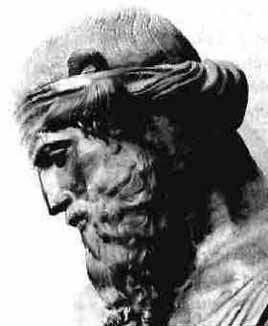Plato & Kundera: Thoughts on Democracy
According to Plato, political science did not need to be concerned with political obligation.
Because of the dominating position which he assigned to knowledge, obligation was not a peculiarly political problem for Plato.
Knowledge = truth, since his knowledge was in fact the one true knowledge, and that was that.
What this actually meant was that political association became a vehicle for the realization of the ultimate good;
The perfect ideal polis.
Everything is excused in the quest for the Eternal Good.
I can't help but think of Milan Kundera when he writes, quite correctly that:
In this world everything is pardoned in advance, and therefore everything cynically permitted.
Plato tried as hard as he could to feign off all attempts at politicizing society.
Politicians should not be allowed to voice opinions, and the Philosopher-King should be entrusted to choose the right path of the city and lead all men (well, all 5000 of them) to salvation.
In Kundera, I sense a hint of resignation. If we take into consideration that The Unbearable Lightness of being was published in 1984, I suppose that by now we could say that more than everything is cynically permitted.
Most things, in fact, are cynically expected.
Today is the International Day of Democracy. I am not quite sure what that means. Ban-Ki Moon writes beautiful words on the notion of democracy, but he also warns us against letting our guard down and permit backlashes in democracy to become the trend.
We take for granted the right to express our opinions on almost everything, and yet in Plato, who is at times celebrated as the birth of modern democracy we find a ruler who knows what is best for all his constituency.
It is his wisdom- and only that- which guides the soul of all men into the Aethenian utopia.
And in our time of constant expression, social media and neverending connectedness
we are becoming numb to the messages and can no longer distinguish the important from the frivolous.
We get stuck in the superficial and forget the urgent.
Let's hope that the Millennium Development Goals Advocacy Group can shed a new light on the urgency.
Because of the dominating position which he assigned to knowledge, obligation was not a peculiarly political problem for Plato.
Knowledge = truth, since his knowledge was in fact the one true knowledge, and that was that.
What this actually meant was that political association became a vehicle for the realization of the ultimate good;
The perfect ideal polis.
Everything is excused in the quest for the Eternal Good.
I can't help but think of Milan Kundera when he writes, quite correctly that:
In this world everything is pardoned in advance, and therefore everything cynically permitted.
Plato tried as hard as he could to feign off all attempts at politicizing society.
Politicians should not be allowed to voice opinions, and the Philosopher-King should be entrusted to choose the right path of the city and lead all men (well, all 5000 of them) to salvation.
In Kundera, I sense a hint of resignation. If we take into consideration that The Unbearable Lightness of being was published in 1984, I suppose that by now we could say that more than everything is cynically permitted.
Most things, in fact, are cynically expected.
Today is the International Day of Democracy. I am not quite sure what that means. Ban-Ki Moon writes beautiful words on the notion of democracy, but he also warns us against letting our guard down and permit backlashes in democracy to become the trend.
We take for granted the right to express our opinions on almost everything, and yet in Plato, who is at times celebrated as the birth of modern democracy we find a ruler who knows what is best for all his constituency.
It is his wisdom- and only that- which guides the soul of all men into the Aethenian utopia.
And in our time of constant expression, social media and neverending connectedness
we are becoming numb to the messages and can no longer distinguish the important from the frivolous.
We get stuck in the superficial and forget the urgent.
Let's hope that the Millennium Development Goals Advocacy Group can shed a new light on the urgency.

Kommentarer
Trackback
